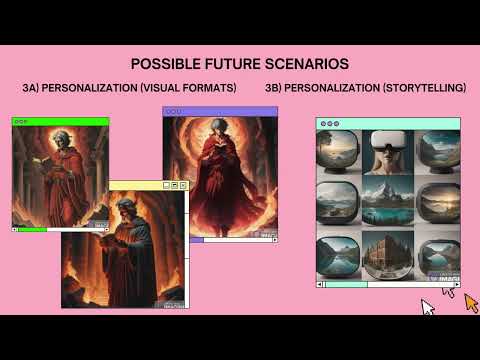 Speaker: Sabrina Bartolotta @Sabrina_Bartolotta
Speaker: Sabrina Bartolotta @Sabrina_Bartolotta
 Affiliation: Research Center in Communication Psychology, Catholic University of Milan
Affiliation: Research Center in Communication Psychology, Catholic University of Milan
Title: Unlocking the Power of Emotions of “Immersive Literature”
Abstract (long version below): Media comparisons stand in a long tradition (e.g., Lessing 1766), with some scholars focusing on how the same phenomena can occur in different guises in various media, while maintaining essential characteristics; and other studies aiming to identifying unique qualities of the medium (e.g., in Chatman 1980, What Novels Can Do That Films Can’t (And Vice Versa). VR and literature seem total opposites; here we will explore how they are, and how they are not. The symposium stimulates a cross fertilization, by coupling empirical research on these media, thus generating new insights, and deepen our understanding of key concepts such as narrative, embodiment, transformative experiences, immersion, presence, and transportation.

 Long abstract
Long abstract
Summary: Immersive Virtual Reality (IMV) is often described as an “empathic machine” due to its exceptional ability to simulate scenarios and evoke a wide range of emotional responses from users. The sense of presence and immersion it offers (Slater & Wilbur, 1997; Slater, 1999), coupled with the potential for inducing a state of flow and narrative absorption (Pianzola et al., 2022), makes IMV a powerful tool for various psycho-educational purposes. By immersing users in simulated virtual worlds, IMV enables them to potentially experience an infinite number of scenarios, and with the advent of Metaverse technology, these experiences can also be shared with others. The study of emotions elicited through engagement with Literature can greatly benefit from the affordances provided by IMV. As eloquently described by Oatley (1995), reading can be seen as an interactive process between the reader and either the author or the characters within a story. On the one hand, when engaging with a text, the reader’s own characteristics and emotions partially enter the fictional world created by the author and on the other hand, the narrative world externally evokes emotions in the reader, thus contributing to the mental simulation the readers create while engaging with the literature content. Emotions, flow, absorption, and immersion play a primary role while reading. In this regard, “Immersive Literature” could be created to investigate whether emotions felt during literature reading are like those arising when presenting them the same literature content in IVR. In this contribution, I will present some research questions that delve into this topic and propose potential practical applications to explore and address these questions empirically.
• Barbot, B., & Kaufman, J. C. (2020). What makes immersive virtual reality the ultimate empathy machine? Discerning the underlying mechanisms of change. Computers in Human Behavior, 111, 106431.
• Oatley, K. (1995). A taxonomy of the emotions of literary response and a theory of identification in fictional narrative. Poetics, 23(1-2), 53-74.
• Pianzola, F., Riva, G., Kukkonen, K., & Mantovani, F. (2022). Am I present in imaginary worlds? Intentions, actions, and flow in mediated experiences and fiction. Behavioral & Brain Sciences, 45.
• Slater, M. (1999). Measuring presence: A response to the Witmer and Singer presence questionnaire. Presence, 8(5), 560–565.
• Slater, M., & Wilbur, S. (1997). A framework for immersive virtual environments (FIVE): speculations on the role of presence in virtual environments. Presence: Teleoperators & Virtual Environments, 6(6), 603–616

